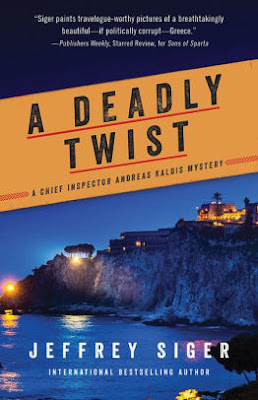Sally Cabot Gunning
Gunning's work has appeared in The Washington Post, The Daily Beast, and an assortment of short story anthologies.
She lives with her husband in Brewster Massachusetts.
My Q&A with the author:
How much work does your title do to take readers into the story?Learn more about the author and her work at Sally Cabot Gunning's website.
An art teacher once told me my job was to the paint the light, but before I could paint the light, I needed some dark to put it on. In Painting the Light, artist Ida Pease is struggling to regain her career after an impulsive marriage goes wrong; she lands on a sheep farm on Martha’s Vineyard where she works to push back the dark and learn how to paint that incandescent Vineyard light, both inside and out. Hence the title.
What's in a name?
Painting the Light is set on Martha’s Vineyard in 1898. In order to capture the sense of the time and the place, I visited old Vital Records and mixed and matched first and last names that had a good ring to them. Why the mix and match? I don’t want to use a name that’s actually a real person. Ida Pease needs to make her own mistakes and experience her own successes without someone else getting blamed or credited.
How surprised would your teenage reader self be by your novel?
My teenage self would be unsurprised. I started writing one rainy day when I was six and my mother didn’t get us to the library fast enough. I kept writing through high school, strictly for my own enjoyment, not showing anyone anything, but my teenage self saw it all. She knew.
Do you find it harder to write beginnings or endings? Which do you change more?
It’s the middle that kills me. I go along fine for about 100-200 pages and then I want to cut to the chase. It takes a real act of will to back up, slow down, let the characters breathe, live, learn, grow. Each time I sit down to write I review the work of the day before, so that means that the beginning gets changed more often than the end. I would like to think its to its benefit, but I never do know until it’s all of a piece.
Do you see much of yourself in your characters? Do they have any connection to your personality, or are they a world apart?
There’s a little bit of me in every character I create. How could there not be? In Painting the Light in particular, there’s a lot more of me because while I was writing a book about an artist in 1898I was taking art classes in 2018. So much of what I learned my protagonist Ida Pease learned. So much of her struggle was my struggle. I had previously written a well-received book about a widow, and in the interim I lost a relative who was not a pleasant person. I wanted to explore how you grieve for someone you didn’t always like, and so as Ida Pease tries to grieve for a husband she didn’t like, I tried to grieve for a relative I didn’t always like. But you’ll note one difference between us already – I have to qualify my experience with the words “didn’t always.” Ida is braver than that.
What non-literary inspirations have influenced your writing?
Reviewers often compliment me on my sense of place. When a book feels like it’s growing up out of the ground at my feet I know I’ve got it right. No matter where the book is located, I go there and live it and feel it, in all four seasons, but because I’m a New England girl born and bred, I particularly loved writing Painting the Light because it brought me back home.
The Page 69 Test: Bound.
The Page 69 Test: The Rebellion of Jane Clarke.
--Marshal Zeringue






























